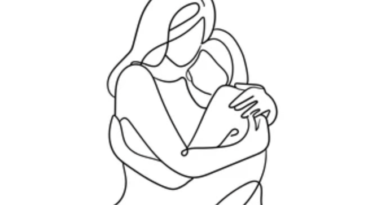Felon’s Alphabet: E is for empathy

According to human resources professionals, empathy is considered a “soft skill”- along with listening, communication, and conflict resolution. But is it really? What’s soft about putting on another person’s size 11 shoes and walking a rough country mile. What’s soft about internalizing the pain a peer is experiencing to such a degree that you can quite literally “feel their pain?”
“E” is for empathy.
According to Webster’s Dictionary, empathy is defined as “the ability to share in another’s emotions, thoughts and feelings.”
Let’s get complete clarity on what empathy is and isn’t. Empathy isn’t sympathy. Empathy isn’t pity. Empathy isn’t a simple “I feel bad for you”, it’s an “I’m feeling with you.” When we have empathy for another person, a unique bond of sorts is created. What they feel begins to matter, how they are doing, begins to matter — the person in their entirety begins to matter.
Did you know that a lack of empathy is a symptom of sociopathy?
Really. It’s true. But before we get into an uproar about this. I am not suggesting that those of us incarcerated for violent crimes (myself included) are sociopathic. Not at all. What I am saying is that there was a definite shortage of empathy, where we cared less about our victims and more about ourselves.
Back then, prior to beginning our rehabilitative journeys, we weren’t as adept as we are today at putting ourselves in our victims’ shoes and really feeling their pain.
Let us collectively remember every missed opportunity for empathy every moment we failed to take into account someone else’s feelings, causing all kinds of distress because we were single-mindedly pursuing our desires — whatever they were at that moment in time.
Our sins are many: A robbery, an assault, a kidnapping, and even murder. What do they have in common? None of these offenses, ranging from major to heinous, are possible with empathy.
To err is human, and so often we fall short. So, what? Try again and again. Work that empathy muscle until it becomes second nature. When you invariably screw up, apologize, make amends and then go forward.
If you believe you could use a refresher course on empathy, take one of the victim-impact self-help groups available in your yard. Not only will increased empathy help you in your everyday life, it will also help you get out of prison.
Empathy is vital to our rehabilitative success. Developing empathy for our victims will allow us to “feel” their pain and take accountability for the harm we have caused, which will deepen our feelings of remorse, increase the depths of our insight, and finally, make sure we do not re-offend.
I would go so far as to suggest that empathy is a human requirement. Look around you. We are social, hive creatures, who are reliant upon one another. Not a one of us exists in a vacuum. And what keeps the wheels of community and goodwill running smoothly is the grease of empathy. Remember, it’s “We, we, we,” not “Me, me, me, me.”



